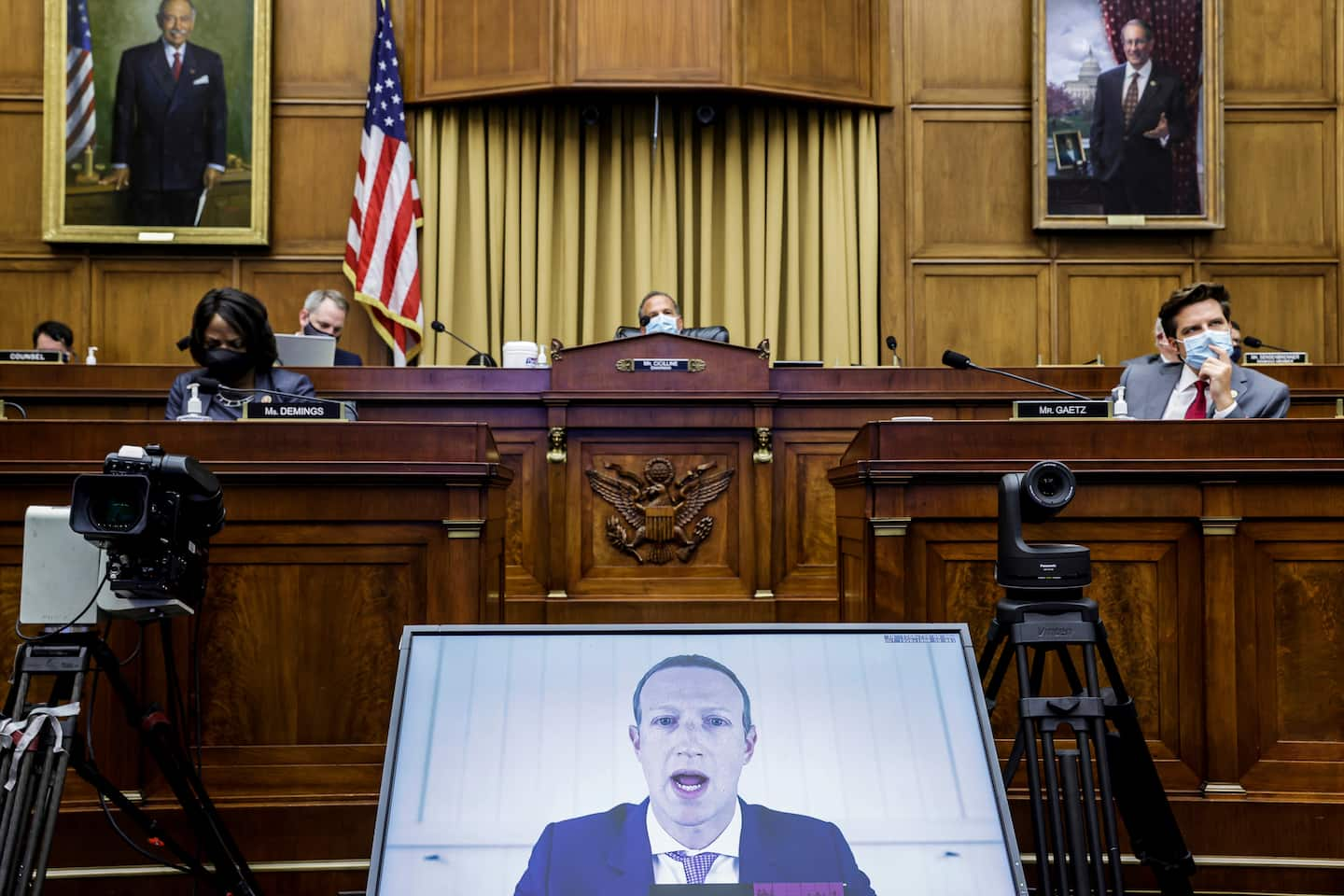Five things to know about the Facebook lawsuits

In a pair of widely expected complaints, the states’ attorneys general and the FTC laid out their cases against Facebook and recommendations for what should be done next.
Here’s what it means for you.
What’s the goal of the lawsuits?
Facebook is a social media monopoly, the complaints say. At the heart of its dominance is a pair of companies it purchased six and eight years ago, respectively: Messaging app WhatsApp and photo-sharing site Instagram. The FTC did not block either move.
The complaints direct Facebook to sell off those the companies and change its policies for how it deals with third-party developers. That’s because Facebook has a policy against developers who make apps that copy any existing Facebook feature on its platform, which the complaints say is anti-competitive.
What will it mean for Facebook, Instagram and WhatsApp users?
In the short term, not much — unless they also happen to enjoy following news about complex antitrust battles. The filings are just the first step in what is likely to be a drawn-out, expensive legal battle with an unknown outcome that could take years. Facebook is unlikely to make any major changes to its current practices or structure at this stage.
However, if the government is successful and Instagram and WhatsApp become independent companies again, any outward-facing changes for users could range from subtle (the removal of that “from Facebook” on WhatsApp) to unfortunate (an uptick in spam and misinformation on Instagram). Since Facebook bought Instagram in 2012 for $1 billion, and WhatsApp in 2014 for $19 billion, it has made changes slowly and let the brands appear largely independent so as not to lose loyal users. (Consider how many people are still fans of Instagram while railing against and even “quitting” Facebook.)
The biggest alterations to the services have happened behind the scenes with complex integrations of the technology that keeps the apps running. For example, Facebook and Instagram share the same advertising service, as well as the data collected about users and fed into it. The company is merging the direct messaging services on Instagram, Facebook and WhatsApp so that communications can take place across platforms.
WhatsApp and Instagram also share much of Facebook’s massive security, moderation and misinformation apparatuses. If split apart, Instagram and WhatsApp could have to re-create on their own those same systems that try to keep users safe.
“A lot of those things are better with more scale,” said Matt Perault, director of the Center on Science & Technology policy at Duke University. “It’s likely that the products could get worse if separated.”
What’s the harm in Facebook buying other companies?
The lawsuits allege that Facebook’s pattern of buying up or squashing competitors has turned it into a monopoly, making it difficult for smaller services to succeed. One benefit of being so large is that Facebook can easily copy a rival’s most appealing feature for its own 3 billion monthly users across its apps, removing any appeal that a competitor may have had. For example, when Snapchat’s “stories” feature was at its peak, Facebook added a nearly identical version to Instagram and later Facebook. (Twitter recently added its own copycat feature.)
Antitrust investigations traditionally have focused on consumer welfare and economic impact, but “free” services such as Google and Facebook could force the government to focus on the consumer-harm side, Perault says. According to the complaints, Facebook’s “buy or bury” strategy hurts consumers by limiting innovation. If no competing options can take off, people won’t have the opportunity to switch.
One of the key areas harmed, the complaints allege, is privacy. Facebook changed the privacy policies of the companies it bought and took steps that the complaints say hurt people’s privacy, such as sharing phone numbers between the apps for features such as suggesting contacts you might know. The complaints also claim that advertisers are hurt by a lack of transparency, as well as negative impact to their brand if seen next to objectionable content such as hate speech.
Facebook, however, points out that other social media companies have managed to launch and grow during its reign. Twitter, TikTok and Snap are all surviving and mostly gaining users, though the latter has struggled at times to add users. While Google may have killed off Google+, its subsidiary YouTube is arguably a social network itself, with more than 2 billion users worldwide.
What happens next?
The lawsuits have been more than a year in the making, but they are still just at the initial stages. The government will have to prove its case in court. The company is processing the complaint and determining what the next steps will be, but it plans on digging in for a long fight. The battle is expected to play out for years in court filings, trials and news releases.
What does Facebook have to say
Facebook quickly defended itself with a statement and blog post written by its general counsel, Jennifer Newstead. In it, Facebook calls the lawsuits “revisionist history” and claims that the FTC’s previous reviews of the Instagram transaction — as well as the European Commission‘s review of the WhatsApp sale — make both purchases “settled law.” (The FTC’s 2012 review did not culminate with an “approval,” but rather allowed the deal to proceed.)
The company says the two apps are only as big and powerful as they are because of Facebook’s investment. Requiring Facebook to sell them would hurt innovation.
Facebook adds that consumers have more options now than ever, and that people choose its products because they want to — not because the products are used by more than 3 billion people globally and therefore the most dominant single service for connecting with others.






